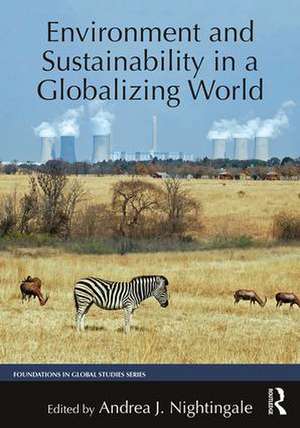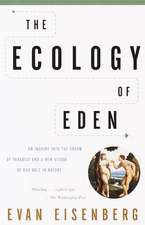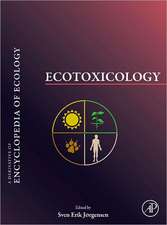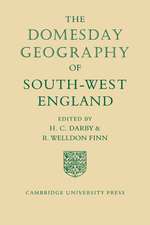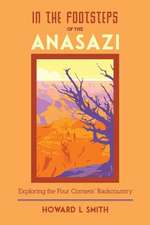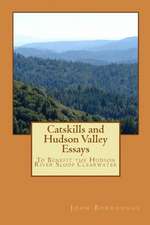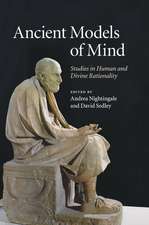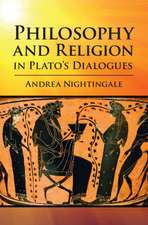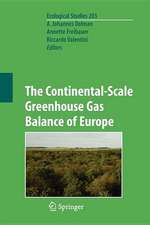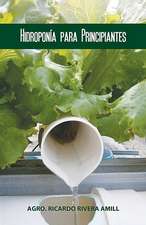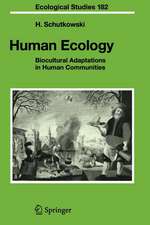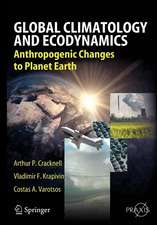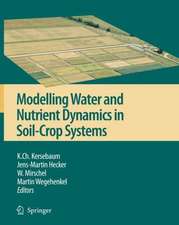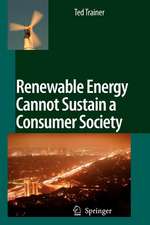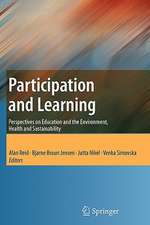Environment and Sustainability in a Globalizing World: Foundations in Global Studies
Editat de Andrea J. Nightingaleen Limba Engleză Paperback – 9 apr 2019
| Toate formatele și edițiile | Preț | Express |
|---|---|---|
| Paperback (1) | 417.96 lei 6-8 săpt. | |
| Taylor & Francis – 9 apr 2019 | 417.96 lei 6-8 săpt. | |
| Hardback (1) | 1009.13 lei 6-8 săpt. | |
| Taylor & Francis – 8 apr 2019 | 1009.13 lei 6-8 săpt. |
Preț: 417.96 lei
Nou
Puncte Express: 627
Preț estimativ în valută:
79.99€ • 86.85$ • 67.19£
79.99€ • 86.85$ • 67.19£
Carte tipărită la comandă
Livrare economică 22 aprilie-06 mai
Preluare comenzi: 021 569.72.76
Specificații
ISBN-13: 9780765646446
ISBN-10: 0765646447
Pagini: 280
Ilustrații: 25
Dimensiuni: 178 x 254 x 18 mm
Greutate: 0.49 kg
Ediția:1
Editura: Taylor & Francis
Colecția Routledge
Seria Foundations in Global Studies
Locul publicării:Oxford, United Kingdom
ISBN-10: 0765646447
Pagini: 280
Ilustrații: 25
Dimensiuni: 178 x 254 x 18 mm
Greutate: 0.49 kg
Ediția:1
Editura: Taylor & Francis
Colecția Routledge
Seria Foundations in Global Studies
Locul publicării:Oxford, United Kingdom
Public țintă
Postgraduate and UndergraduateCuprins
About This Book and Series Part One: Background, Theory, and Context 1. Introduction and Overview 2. Background and History of Sustainability 3. Narratives of Sustainability: Key Concepts and Issues 4. Enacting Sustainability 5. Issues of Scale in Producing Sustainability 6. The Range of Environmental Concerns Part Two: Case Studies 7. Introduction to the Case Studies 8. Alternative Food Movements and Transition Towns in the United Kingdom 9. Community Forestry and Sustainability in Nepal 10. Sustainable Mining and the North 11. Governing Genetically Modified Crops and Agricultural Sustainability 12. Rethinking Sustainable Community Through Permaculture Initiatives in Zimbabwe 13. The Entanglements of Oil Extraction and Sustainability in the Ecuadorian Amazon 14. Sustainability and Gender Equality: Exploring the 2030 Agenda for Sustainable Development 15. Sustaining What and By What Means? The Importance of Local Social Relations in the Sahel
Notă biografică
Andrea J. Nightingale is a Professor in the Department of Sociology and Human Geography at the University of Oslo. She has been Chair of Rural Development in the Global South at the Swedish University of Agricultural Sciences and a Professor II at Noragric, Norwegian University of Life Sciences.
Tom Böhler, Ph.D., teaches human ecology at the School of Global Studies at the University of Gothenburg in Sweden. His teaching focuses on what todays mainstream processes of sustainable development in rich consumer societies like Sweden can learn from perspectives such as critical post-humanism (sustainability and trans-species egalitarianism), political ecology (natural resources, power and [in]justice); ecological economy (sustainability and the endurance of natural resources), economic democracy (sustainability and collective ownership), and political ontology (sustainability and pluralism of ontologies).
Ben Campbell is senior lecturer in the Department of Anthropology, Durham University, UK, and directs the MSc in Sustainability, Culture and Development. He is co-chair of the Low Carbon Energy for Development Network. His research focuses on poverty, livelihoods, and resources in Nepal; on innovation among mountain indigenous communities; on the impacts of environmental conservation on local institutions of common property management; and on energy transitions from fuelwood use to biogas at high altitudes. His publications include Living between Juniper and Palm: Nature, Culture and Power in the Himalayas (Oxford University Press, 2013), and “Communities of Energy,” (Economic Anthropology, 2016).
Linus Karlsson is a PhD student at the Department of Urban and Rural Development at the Swedish University of Agricultural Sciences. His research interests include critical agrarian studies, the politics of land use, state formation, and state-citizen relations. In particular, he focuses on how regime shifts in land-use governance generate new conflicts over public authority and rights in resources. In his research, he moves between the fields of geography, anthropology, sociology, and postcolonial theory.
Tom Böhler, Ph.D., teaches human ecology at the School of Global Studies at the University of Gothenburg in Sweden. His teaching focuses on what todays mainstream processes of sustainable development in rich consumer societies like Sweden can learn from perspectives such as critical post-humanism (sustainability and trans-species egalitarianism), political ecology (natural resources, power and [in]justice); ecological economy (sustainability and the endurance of natural resources), economic democracy (sustainability and collective ownership), and political ontology (sustainability and pluralism of ontologies).
Ben Campbell is senior lecturer in the Department of Anthropology, Durham University, UK, and directs the MSc in Sustainability, Culture and Development. He is co-chair of the Low Carbon Energy for Development Network. His research focuses on poverty, livelihoods, and resources in Nepal; on innovation among mountain indigenous communities; on the impacts of environmental conservation on local institutions of common property management; and on energy transitions from fuelwood use to biogas at high altitudes. His publications include Living between Juniper and Palm: Nature, Culture and Power in the Himalayas (Oxford University Press, 2013), and “Communities of Energy,” (Economic Anthropology, 2016).
Linus Karlsson is a PhD student at the Department of Urban and Rural Development at the Swedish University of Agricultural Sciences. His research interests include critical agrarian studies, the politics of land use, state formation, and state-citizen relations. In particular, he focuses on how regime shifts in land-use governance generate new conflicts over public authority and rights in resources. In his research, he moves between the fields of geography, anthropology, sociology, and postcolonial theory.
Descriere
From the Foundations in Global Studies series, this student-friendly text helps students to understand the globalizing processes relating to environment and sustainability that are examined in a range of disciplines, including environmental studies, geography, global studies, political science, international affairs, comparative politics.
